
-
Understanding primary immunodeficiency (PI)

Understanding PI
The more you understand about primary immunodeficiency (PI), the better you can live with the disease or support others in your life with PI. Learn more about PI, including the various diagnoses and treatment options.
-
Living with PI
-
Addressing mental health
-
Explaining your diagnosis
- General care
- Get support
- For parents and guardians
-
Managing workplace issues
- Navigating insurance
-
Traveling safely

Living with PI
Living with primary immunodeficiency (PI) can be challenging, but you’re not alone—many people with PI lead full and active lives. With the right support and resources, you can, too.
-
Addressing mental health
-
Get involved

Get involved
Be a hero for those with PI. Change lives by promoting primary immunodeficiency (PI) awareness and taking action in your community through advocacy, donating, volunteering, or fundraising.
-
Advancing research and clinical care
-
Research Grant Program
-
Consulting immunologist
-
Diagnosing PI
-
Getting prior authorization
-
Clinician education
-
Survey research
-
Participating in clinical trials

Advancing research and clinical care
Whether you’re a clinician, researcher, or an individual with primary immunodeficiency (PI), IDF has resources to help you advance the field. Get details on surveys, grants, and clinical trials.
-
Research Grant Program
Solene Rodrigue is an avid equestrian who’s participated in many hunter/jumper competitions. A few years ago, her horse Liam misjudged a jump and broke the gate in half. Solene flew out of the saddle and slammed into the ground on her tail bone. She felt some pain over the ensuing days but ignored it – until she couldn’t. Shaking and nauseous, Solene went to the doctor for x-rays. The impact had broken her pelvis in two places.

“You can say I’m pretty tough,” said Solene, who walked around for five days with the injury before seeking help.
That strong will to carry on no matter the circumstances, no matter the level of pain has defined Solene since infancy. Solene, 45, has severe combined immunodeficiency (SCID).
A diagnosis
When Suzanne Rodrigue, Solene’s mother, brought her newborn daughter home from the hospital in October 1976, she appeared healthy, but within days, developed vomiting and diarrhea. Suzanne reported the symptoms to her doctor, and he instructed her to continue breastfeeding and assured her it would get better.
“I told the doctor many times, and he said keep trying,” said Suzanne. “The pediatrician thought it was all in my head.”
After a month of watching her baby struggle, Suzanne switched Solene to formula, which only made it worse. She changed Solene’s diaper constantly to prevent rashes.
“I spent every night rocking her and she was crying a lot and I was trying to get her into a comfortable position,” recalls Suzanne.
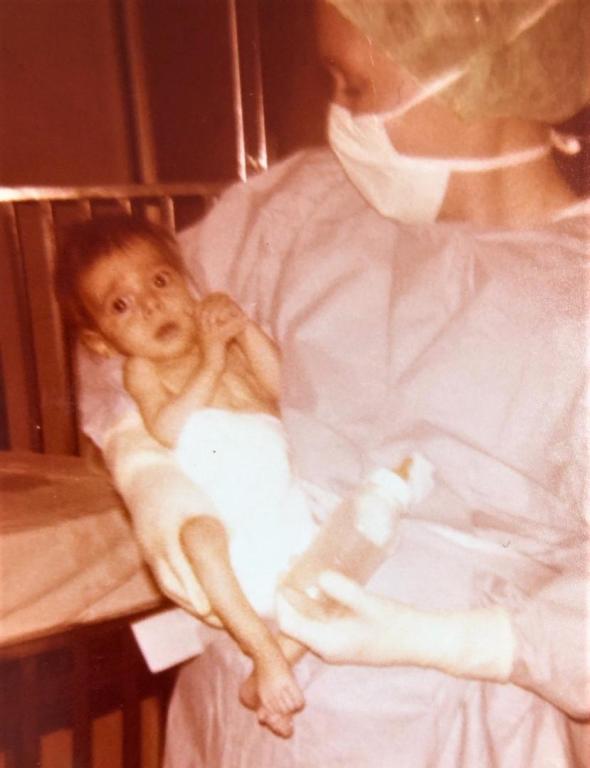
The holidays arrived and Solene’s health deteriorated.
“When Christmas came everything went downhill. We were overwhelmed. We didn’t know what to do and the doctor was no help,” said Suzanne.
The family sought help at an emergency room near their home in Connecticut, and as hospital staff frantically ran tests on the baby, they prepared for the worst. Solene went into cardiac arrest and doctors said she wouldn’t live more than a few days.
“But Solene is a fighter. I called the priest, and I was crying, and the priest said put her in the Lord’s hands, in God’s hands and that reassured me and took the load off my shoulders,” said Suzanne. “And she lived – it’s a miracle she lived.”
Doctors diagnosed Solene with a rare form of pneumonia but also with a genetic condition the family had never heard of – ADA-SCID. As a result of SCID, a rare and life-threatening primary immunodeficiency, Solene couldn’t produce the cells necessary to form an immune system. She would likely die from infection unless treated with a bone marrow transplant (BMT).
After many weeks at the University of Connecticut Hospital where doctors worked to clear her pneumonia, Solene returned home with her family, who had strict orders to not let her come into contact with other people. A nurse visited the home weekly to administer intravenous immunoglobulin to Solene, who battled thrush (yeast infection of the throat and/or mouth) as she awaited her transplant.
A treatment
In June 1977, Solene received a BMT at Sloan Kettering Hospital in New York using cells donated from her older sister, Roxanne. Roxanne is a perfect human leukocyte antigen (HLA) match with Solene, and that match greatly increased the chances of success of the BMT.
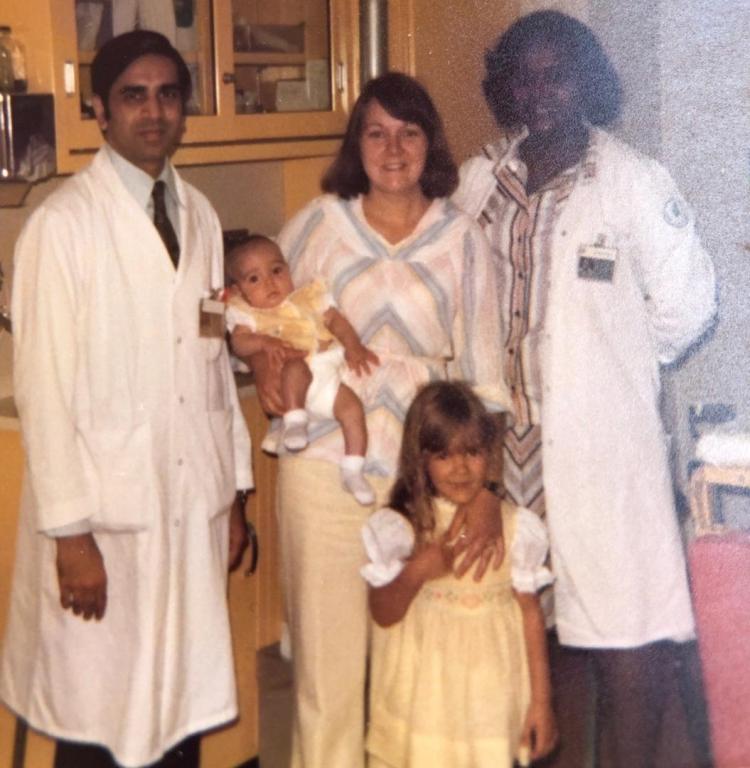
“She is one of the first ones in the world that had a successful bone marrow transplant,” said Suzanne. “Her case is in the medical books.”
To help her understand the complicated medical terms, Suzanne, a native French speaker, carried an English dictionary with her to New York. She recalls the isolation procedures required at the hospital and the frail state of her daughter.
“They put Solene in a sterilized room so she would not catch germs. We needed to disinfect ourselves and wear special clothing to go inside the room to see her,” said Suzanne. “She was 8 months old, and she weighed only 8 pounds.”
Solene developed pneumonia after the BMT but, just as she had as an infant, she pushed through the sickness, determined to survive.
“She fought through it again and finally we could bring her home,” said Suzanne. “She started gaining weight. At 9 months, she weighed 12 pounds. She started eating solid food, which was very difficult since she had never swallowed any solid food since she was born.”
Childhood
Solene remained healthy for a period, returning to New York for monthly check-ups and eventually transitioning to a pediatrician closer to her home. She walked at age 15 months but as time went on, she only said a few words. Most of the time, she pointed and shouted when she wanted something. The pediatrician recommended a hearing evaluation.
“She had severe hearing loss because of the cardiac arrest as a baby,” said Suzanne. “We bought her a hearing aid right away.”
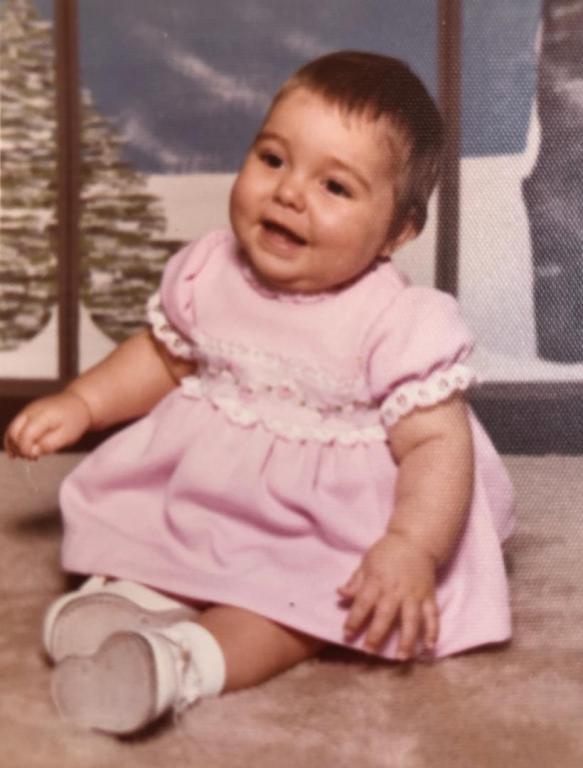
Solene developed many ear infections with high fevers that doctors treated with antibiotics, and at age 6, she contracted chickenpox. She stayed in the hospital for two weeks battling pneumonia in both lungs. Treatment on a ventilator and a blood transfusion, along with experimental antibiotics, allowed her to recover.
“She went through so much pain. She is a very courageous person,” said Suzanne.
Once Solene started school, her emotional health suffered. Equipment used to help Solene hear led to bullying from her classmates, making school almost unbearable. She developed anxiety and depression.
“She had panic attacks and was miserable. We bought her so many books and she read and read,” said Suzanne, who took her daughter out of public school in eighth grade and put her in a private school where she made friends and became happier. An animal lover, Solene also found comfort in her pets.
Over the years, her parents made Solene try different activities like soccer and ballet, but she liked none of it. Her father decided horseback riding might be more her style. And he was right.
“We leased a horse, and she would go to shows for many many years,” said Suzanne.
The present
While Solene continues to ride, she hasn’t shown her horse lately. She is busy working in the healthcare industry and planning her upcoming wedding. An English major in college, Solene is still a book lover and enjoys other hobbies like working out in the gym, walking, watching old movies, and spending time with family, friends, and her fiancé.
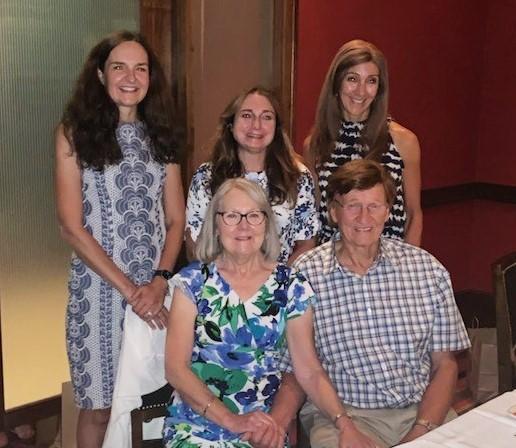
Recently, Solene became connected to the wider SCID community through SCID, Angels for Life, and IDF’s SCID Compass program. She now serves on the SCID Compass Steering Committee and Patient Advisory Board.
Meeting other persons with SCID allows her to learn more about the condition and act as an inspiration to those families just beginning their journeys with SCID.
“I’m so happy to share my story with others, and offer hope for SCID patients and their families,” said Solene. “No matter what happens, never give up. Even in the darkest times, there is hope. Cherish every moment because you never know what can happen.”
Related resources
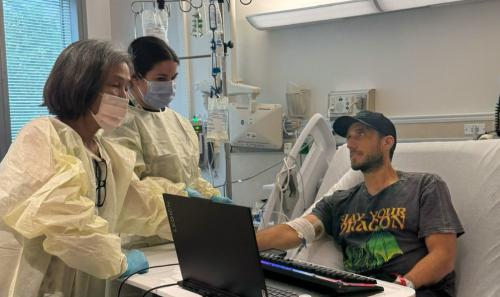
Man with X-linked hyper IgM first-ever to receive novel gene therapy
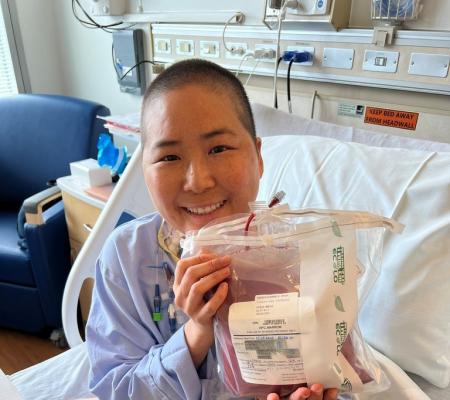
Pharmacist with CVID receives bone marrow transplant

Undiagnosed: Reuben & Sherri Johnson on CGD, chronic illness, and the fight for healthcare
Sign up for updates from IDF
Receive news and helpful resources to your cell phone or inbox. You can change or cancel your subscription at any time.





The Immune Deficiency Foundation improves the diagnosis, treatment, and quality of life for every person affected by primary immunodeficiency.
We foster a community that is connected, engaged, and empowered through advocacy, education, and research.
Combined Charity Campaign | CFC# 66309

